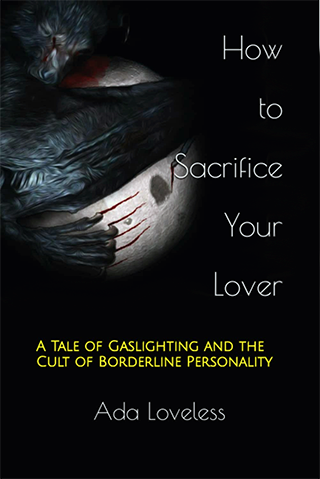Is “Gone Girl” a Borderline Personality?

*** SPOILER ALERT*** This article contains spoilers.
I recently watched the movie “Gone Girl”. I have yet to read the novel, but it is high on my list. Is “Gone Girl” a story about a Borderline Personality? Principally, no… Principally, “Gone Girl”, is a manifestation of anti-social personality disorder. “Amazing Amy” is a psychopathic person, but we see three versions of Nick and Amy in this story. And you could argue that the couple exhibits different personalities at different times in the story and one of those versions of Amy, you could argue is borderline. In real life, personalities would not suddenly change, but this is a work of fiction.
The first version of Nick and Amy we see is normal. Their initial meeting was extremely normal, witty, romantic. At this point, there’s no real sign of personality disorders between them, although Amy expresses that she feels undervalued by her parents who paint a more-successful caricature of her in their successful children’s book series “Amazing Amy”, who Amy feels she cannot live up to.
Once Amy and Nick move to “flyover country”, Amy becomes anti-social and Nick (at least acts) like he loves her. Nick tells his sister he really just wanted to be with Amy and have a child with her, but Amy was cold and calculating and controlling and didn’t want children… and that drove him to cheat. This might confuse you because the story initially takes the perspective as heard in Amy’s diary, but we later learn that Amy’s diary is full of lies. It is important to remember that Nick never actually hits Amy, and Nick was the one who wanted a child.
Nick’s version of the Nick and Amy story is a common pairing, if Amy is, in fact, anti-social, then Nick plays the part of the person trying desperately to win her heart, the person she controls. When she learns that she cannot control him, which begins the moment he unilaterally decides to move the both of them to Missouri (before he even begins cheating), she gets angry, and upon learning he cheated she plans an act of severe revenge.
Once Amy gets robbed, you could say that Amy’s personality changes and becomes closer to borderline. The principal difference between anti-social vs. borderline behavior is that borderline behaviors are rooted in impulse, whereas anti-social behaviors are planned and premeditated.
Nick declares that he knows how to lure her back… and goes on television claiming to be a “bad person”. Nick at this point becomes cold and when she returns home, he “acts” like he is a robot trained to smile for the cameras, rarely moving his eyebrows and is really cold and offering her no love. Amy is intensely attracted to this cold expressionless version of him. This borderline/sociopath pairing is also a very common, typical pairing and is a principal dynamic throughout my book “How to Sacrifice Your Lover”.
Borderline people are often natural “gaslighters” capable of rewriting the realities of people who care about them blindly. “Amazing Amy” is not a gaslighter throughout the story until she eventually gaslights Desi Collins, a man whose heart she broke in high school who is still emotionally obsessed with her, therefore easy to manipulate. She then murders him and claims rape, which is certainly an extreme manifestation of BPD behavior as long as it is impulse-driven, which, in my opinion, it is… (change my mind). She impulsively wants to return to her husband, since he had rewon her love by playing the part of a sociopath on television. Up until she is robbed, she is a liar, yes, but she is not gaslighting anyone. She returns home to then gaslight Nick.
What is gaslighting? It is a set of behaviors and strategies that allow one person to rewrite another person’s reality, principally through a process of disconnecting the target’s emotional brain from their logical brain. A BPD person will create a fake, ideal version of themself, and lure in a target who is most-guaranteed to protect them and take care of their needs. There’s also some withholding involved. By withholding what they want, the gaslighter is creating a dynamic that keeps the target constantly working for them. It is no different than a cult with the BPD person being the leader and their targets, disciples.
Desi Collins is a successful narcissist, obsessed with perfection. You probably didn’t like his character, as his purpose is not to be loved. He is there to be drained by the borderline personality, to be fooled into believing she loves him, but ultimately betrayed. He has an endless desire for Amy, is capable of taking care of Amy, and is willing to use his success and her weakness as leverage to keep her trapped and bonded to him. Basically, he will do anything for her, and vigorously defends her when Nick speaks negatively about her when he visits.
In a nutshell, this might be an alternate scene between Amy and Desi Collins. Amy might have a knife in her hand… and when asked “Why are you holding a knife?”… quickly hide it… “
“I don’t have a knife, I never had a knife!”
“But I saw a knife in your hand just now, where did you put it?”
“No, you didn’t see a knife, what’s wrong with you? Are you going crazy?” This would likely be followed by some emotional wrangling… she might stare into his eyes and say “Hey, I love you, everything is okay.” Then she would kiss him to pacify him as she holds the knife to his back. He would be smitten by her emotional response and seek to argue reality with her no longer.
Compare that to “Inari” from my book “How to Sacrifice Your Lover”. Inari is based on a real character who despite having a fictional name, exists in reality. Inari’s actions are always rooted in impulse, in the moment, and there are many times when Inari seems to be unable to disconnect herself from the moment as she is locked in impulse… a “feedback loop”. Just because a BPD individual is impulsive does not mean that they cannot tell an elaborate lie. Inari from my book is a Borderline Personality who keeps up many elaborate lies, but her need to lie is in response to her need to cover up her impulsive behavior, and the tools she uses to sell her lies are often emotionally manipulative. When she needs to cover up facts, she uses emotional manipulation to gaslight her followers.
One key tactic she uses is to gradually chip away at Yuki’s perception of what is normal and appropriate. In effect, Yuki and Inari represent the relationship between Desi and Amy. Inari’s ability to disconnect Yuki’s logical vs. emotional brain is the core of her uncanny ability to gaslight him. She is driven, as BPD individuals typical are, by her need to avoid abandonment, and get her needs met, out of necessity… survival…. as BPD individuals are often too mentally tormented by trauma to take care of themselves. In Amy’s case, she needs Desi Collins for her survival, so she plays the part, pretends to be the woman he wants her to be, while also withholding from him what he actually wants. This is all basically straight out of the gaslighting playbook and exactly what a BPD individual would do.
Whereas Amy has carefully planned the framing of her husband, Nick, in the first half of the story. In the later parts of Gone Girl, however, Amy becomes impulsive. Borderline Personalities are intensely attracted to sociopaths. Nick turns the tables in understanding that his wife really wants him to be a cold, bad person. And that’s how he emotionally “plays” her on national television. It is common for a BPD person to attempt to torture their sociopathic lovers impulsively in order to invoke emotional responses from them. This is what’s known as a “High Conflict Personality”. In effect, the HCP gets a euphoric jolt from creating chaos, and the more sturdy Nick is, the harder she has to try to create these responses and the more she wants him. This echoes Inari’s treatment of Jin in my book.
Amy murders Desi Collins without properly thinking through how it all tied into the narrative of her disappearance. But psychopaths have impulses too, and psychopaths rarely plan things perfectly and even often desire to get caught, so someone out there is going to disagree with me on this part (again, it is a work of fiction). Yet, her only motivation for returning home is that she is attracted to Nick’s coldness, whereas Desi Collins is a rather creepy character as played by Neil Patrick Harris, he wasn’t putting her in any danger, but rather, merely an imposition. She didn’t really need to leave but was emotionally driven to. Desi Collins also represents how a BPD individual cultivates emotionally inappropriate “friendships”, putting them on “shelves”… calling on them to come to their aid when needed. This can often create trouble, and in my book, Inari creates trouble for herself from this behavior.
Desi Collin’s is kinda creepy, and in effect, his character represents where “Yuki” exists in relation to “Inari” in my own book… which is not at all a self-compliment, as Yuki represents myself. Yuki is the guy who won’t leave Inari alone, and Inari has no shame in putting Yuki in a certain emotionally inappropriate place… but not too close.

Desi Collins, regardless of whether you like him or not, pays the ultimate price in Gone Girl. He is the only one who loses his life, so even though you probably want to kick him in the balls, he doesn’t deserve the fate he receives… so if you felt satisfaction when Amy slit his throat…. well shame on you! The fact that she would vilify him as a rapist to cover up her own impulsive misdeeds… also a BPD trait.
I could argue that he is mentally screwed up because Amy shattered his heart when they were younger, resulting in him being institutionalized, and in “Gone Girl” Amy maintains this relationship with Desi Collins, presumably to keep him on a “shelf”…. keeping him tormented… preventing him from moving on in his life… in the same way a BPD person protects him/herself from abandonment. This is what Inari does to Yuki in my book.
Using her pregnancy as an anchor, she is in effect gaslighting Nick when she returns home. Holding children hostage to prevent abandonment is a huge red flag of gaslighting and typical BPD behavior.
Anyway… that’s my take on it. I became fascinated by psychology as I completed the final revisions of my book. Gone Girl is a story about fictional characters and you can’t really psychoanalyze fictional characters, but it is fun to speculate.
Please review Of Human Bondage 1934 next.